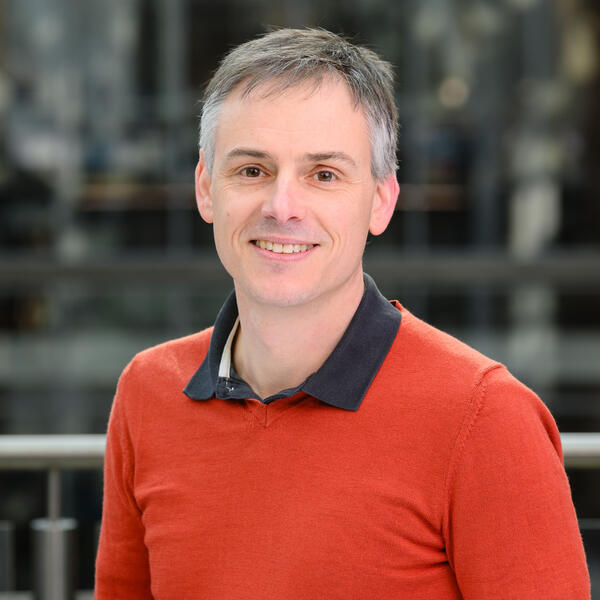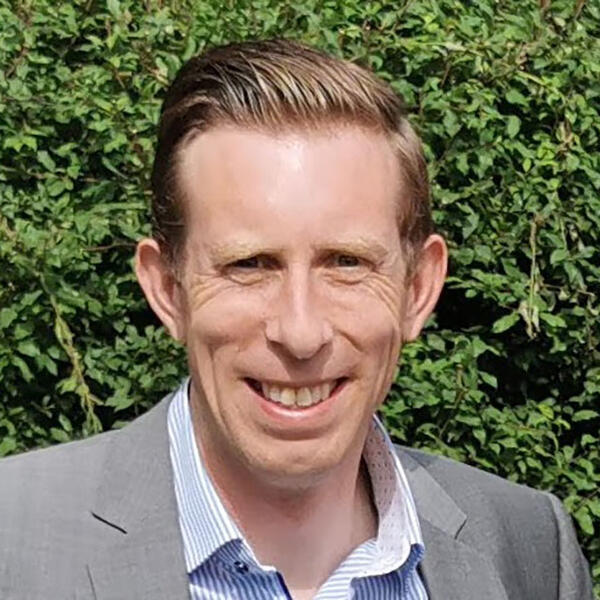Research team
Investigators and researchers involved with the CASCADE project.
Principal Investigators
Robin Purshouse, University of Sheffield, UK
Robin Purshouse received the MEng degree in Control Systems Engineering in 1999 and a PhD in Control Systems in 2004 for his research on multi-objective optimisation.
Alongside CASCADE co-investigators Alan Brennan and Petra Meier, he developed the original Sheffield Alcohol Policy Model (SAPM) in 2008. The model was principally used to analyse pricing and promotion policies, but subsequently expanded to cover screening and brief intervention policies in 2009.
Robin was also lead modeller for the first two Scottish adaptations of SAPM, used to support the development of minimum unit pricing legislation in Scotland. Robin is interested in how dynamics and uncertainty can effectively be incorporated into public health policy models.
He held an ESRC Future Research Leaders award (2012-2014) that developed a calibrated model of alcohol use in England based on a Theory of Planned Behavior generative mechanism, and which forms the preliminary findings for CASCADE.
Bill Kerr, Alcohol Research Group, US
William C. Kerr, PhD, is a senior scientist at the Alcohol Research Group (ARG).
Since joining ARG in 2001, Kerr has pursued research in the areas of alcohol policy; the methodology of alcohol use pattern measurement; the decomposition of trends in U.S. alcohol consumption with a focus on age, period and cohort modeling; and the relationship between alcohol use patterns and health and mortality outcomes.
His research utilises both individual-level data from surveys and aggregate-level data from sales and mortality statistics.
Jürgen Rehm, Centre for Addiction and Mental Health, Canada
Jürgen Rehm, PhD, holds positions at the CAMH (Toronto, Canada) as Director of the Institute for Mental Health Policy Research and Head of the PAHO WHO Collaborating Centre.
In addition, he has been appointed the Inaugural Chair for Addiction Policy at the Dalla Lana School of Public Health of the University of Toronto, and section head for epidemiology at the Institute for Clinical Psychology and Psychotherapy of the Technical University Dresden (Germany).
Dr Rehm has published more than 800 peer-reviewed journal articles in addiction research; he is listed among the ISI/Thompson Reuters globally most highly cited in the fields of social research and epidemiology (top 1% with respect to impact as measured by citations) and has been awarded the Jellinek Award, the most prestigious award worldwide for alcohol research.
He has served as consultant to many countries, and is member of the WHO Expert Advisory Panel of on Drug Dependence and Alcohol Problems.
Joshua Epstein
Joshua M. Epstein is professor of emergency medicine at Johns Hopkins University (JHU), director of JHU’s Center for Advanced Modelling, and co-director of its Systems Institute.
He holds joint appointments in applied mathematics, civil engineering, economics, environmental health sciences, biostatistics, and international health, and is an external professor at the Santa Fe Institute.
A pioneer in agent-based modeling, Epstein has authored seminal books including Growing Artificial Societies: Social Science from the Bottom Up, with Robert Axtell; Generative Social Science: Studies in Agent-Based Computational Modeling; and Agent_Zero: Toward Neurocognitive Foundations for Generative Social Science.
He holds a PhD from MIT and has taught at Princeton University and lectured worldwide. In 2008, he received an NIH Director’s Pioneer Award and in 2010, an honorary doctorate of science from Amherst College, his alma mater.
Researchers
Charlotte Buckley, University of Sheffield, UK
Charlotte Buckley studied Psychology and Neuroscience and Psychological Methods at the University of Sussex. In 2017, she completed her PhD in Experimental Psychology at the University of Bristol (Nutrition and Behaviour Unit).
During her PhD, Charlotte conducted primary research investigating the psychobiological factors involved in human appetite control and developed an interest in advanced statistical techniques and data-driven research.
Following this, she worked as a Research Associate in the same group, using principles from behavioural science and psychophysics to model the importance of psychological and environmental factors in determining choices for higher protein foods.
Charlotte joined CASCADE in 2018 to pursue her research interest in the modelling of complex human behaviours.
Alexandra Nielsen, Alcohol Research Group, US
Alex is currently pursuing a PhD in systems science from Portland State University. In her dissertation research she uses an agent based model to explore policies to expand treatment capacity for opioid use disorder in the US.
As a part of that research she is developing a metric of access inequality combining the Lorenz curve and Gini coefficient and the gravity model of spatial potential accessibility.
She hopes to complete her dissertation research by summer 2017. Alex also teaches discrete event simulation and system dynamics modeling (on occasion) in the systems science program at Portland State University.
Jayadeep Patra, Centre for Addiction and Mental Health, Canada
I am an epidemiologist by training and have been working in the field of alcohol for last 10 years.
Prior to joining CGHR at St Michael Hospital for my post-doctoral, I worked as a Research Scientist at the Centre for Addiction and Mental Health, Toronto where I was closely involved in various projects with Dr. Jurgen Rehm, including WHO funded the global burden of diseases (GBD) and injuries due to alcohol.
I have also worked as a methodological expert in second Canadian cost study of substance abuse where my role was to do epidemiological as well as economic analysis of alcohol, tobacco and illicit drugs.
Besides, I also did major analysis in avoidable cost study due to alcohol in Canada where we looked at the impact of several interventions, including pricing and taxation, on alcohol cessations. All above studies have engendered several of my publications in high impact journals.
Tuong Vu, University of Sheffield, UK
Tuong received his BSc, MSc, and PhD from the University of Nottingham. His PhD focuses on the Agent-Based Modelling and Simulation (ABMS) of Public Goods Game (PGG) in Economics
In his thesis, a development framework was developed by using software-engineering methods to provide a structured approach to the development process of agent-based social simulations.
Also as a case study, he used the framework to design and implemented a simulation of PGG in the continuous-time setting which is rarely considered in Economics. In 2017, Tuong joined CASCADE to further pursue his research interest in strategic modelling and simulation of human-centred complex systems.
Co-investigators
Professor Alan Brennan, University of Sheffield, UK
Alan Brennan is Professor of Health Economics and Decision Modelling in the School of Health and Related Research at the University of Sheffield.
He studied for BSc Mathematics at Imperial College London and then MSc Operational Research at the London School of Economics before joining the NHS to work in and then lead the Trent Operational Research Unit. Since 1994, Alan has been leading the modelling team at ScHARR.
He has been developing and applying modelling in support of healthcare decision-making nationally and internationally, across a large range of diseases, interventions, service planning and policy issues for over 25 years.
Alan is a regular expert on several NICE Scientific Advice Programme panels, providing input to the design of phase III studies from an economic/NICE perspective, usually for global pharmaceutical and device manufacturers.
Tom Greenfield, Alcohol Research Group, US
Tom Greenfield is scientific director of PHI's Alcohol Research Group (ARG). He also directs ARG's National Alcohol Research Center, which focuses on the epidemiology of alcohol problems and is sponsored by the National Institute on Alcohol Abuse and Alcoholism (NIAAA).
Greenfield is a core faculty member of the clinical services research training program at the University of California at San Francisco's Department of Psychiatry.
His research interests include the epidemiology of alcohol use and problems, alcohol policy studies, consumer satisfaction, national alcohol surveys and consumption measurement, drinking patterns and mortality, and services research. He oversees the ARG Center's National Alcohol Surveys, conducted every five years.
Petra Meier, University of Sheffield, UK
Petra Meier studied psychology at the University of Heidelberg in Germany, before completing an MSc by Res in Child Health (University of Hertfordshire) and a PhD in Epidemiology & Health Sciences (University of Manchester).
She was a Lecturer in Psychology for two years after her doctorate, before joining the University of Sheffield in 2006 where she is now Professor of Public Health. Petra is the Director of the Sheffield Alcohol Research Group, a leading international centre for alcohol policy modelling research with 16 team members, funded by grants from MRC, ESRC, EU, NIHR, NIAAA, DH, Scottish, Irish and Welsh Government, Cancer Research UK and Alcohol Research UK.
Petra is also the Director of the University of Sheffield’s Wellcome Trust PhD Scholarships in Public Health Economics and Decision Science and took over as ScHARR’s Postgraduate Director of Research in early 2016.
Paul Shuper, Centre for Addiction and Mental Health, Canada
Dr. Paul Shuper is a Senior Scientist with the Institute for Mental Health Policy Research at CAMH; an Assistant Professor in the Social and Behavioural Health Sciences Division at the Dalla Lana School of Public Health at the University of Toronto; and an Affiliate of the Center for Health, Intervention, and Prevention at the University of Connecticut.
Mark Strong, University of Sheffield, UK
Mark is an academic public health doctor and a statistician.
He is a Reader in Public Health Decision Making and Director of the Public Health Section at ScHARR. Mark's research interests relate to the management of uncertainty and the value of information in decision making - and specifically, what is the value of spending time improving a computer model versus collecting new data.
He has developed fast and efficient methods for computing value of information measures, and published on the 'Expected Value of Model Improvement'. Mark leads on uncertainty management for the CASCADE project, including development of model calibration methods for agent-based models and microsimulations.
John Holmes, University of Sheffield, UK
I am currently a Reader in Alcohol Policy in the Sheffield Alcohol Research Group at ScHARR.
My research focuses on patterns and trends in alcohol consumption and the analysis of alcohol policy options. Recent work has focused on the decline in youth drinking, characterising drinking occasions and using theories of practice to provide new insights into national drinking cultures.
Much of my past work has focused on the development of the Sheffield Alcohol Policy Model and its use in to inform policy debate in the UK and internationally; especially around Minimum Unit Pricing and the new UK Drinking Guidelines.
I am particularly interested in typological analyses of behaviour, the clustering within individuals of health-related behaviours, questions of equity and critical perspectives on public health policy and policy-making.
Matt Field, University of Sheffield, UK
I conduct research into the psychological mechanisms that underlie alcohol problems and other addictions. I am particularly interested in the roles of decision-making and impulse control in addiction, recovery, and behaviour change more broadly.
To give some examples, I conduct laboratory research to investigate determinants of motivated behaviour, and I work with people with alcohol problems to study the process of recovery and to investigate novel translational treatments.
My research has been funded by the MRC, ESRC, Wellcome Trust and Alcohol Research UK, among other organisations
Alumni
Hao Bai
Hao Bai had a MEng degree in Electrical Engineering in 2004 and a PhD in Railway Engineering in 2010 for his research in condition monitoring on safety-critical railway assets.
Since 2011, he has been working on agent-based modeling in different fields. A cellular-level simulation of bacteria Escherichia coli and its response to oxygen supplies helped molecular biologist to obtain a new spatial view of how the transcription factors react to changes of oxygen level.
He also applied agent-based modeling on patient flow in NHS A&E department to help improve its efficiency and reliability by sorting out complex logic.
Charlotte Probst, Centre for Addiction and Mental Health, Canada
Charlotte Probst, PhD, is currently a project scientist at the Institute for Mental Health Policy Research of the Centre for Addiction and Mental Health (CAMH).
Charlotte received her MSc psychology in 2013 from Technische Universität Dresden (TUD) and recently completed her PhD at TUD in collaboration with CAMH. For the past six years Charlotte worked in the field of epidemiological addiction and alcohol research including contributions to the European research project ALICE RAP and the WHO/PAHO Collaborating Centre at CAMH.
Her research focusses on socioeconomic differences in alcohol use and related health burden. In her doctoral thesis she performed a comparative risk assessment quantifying socioeconomic differences in alcohol-attributable mortality in South Africa.






